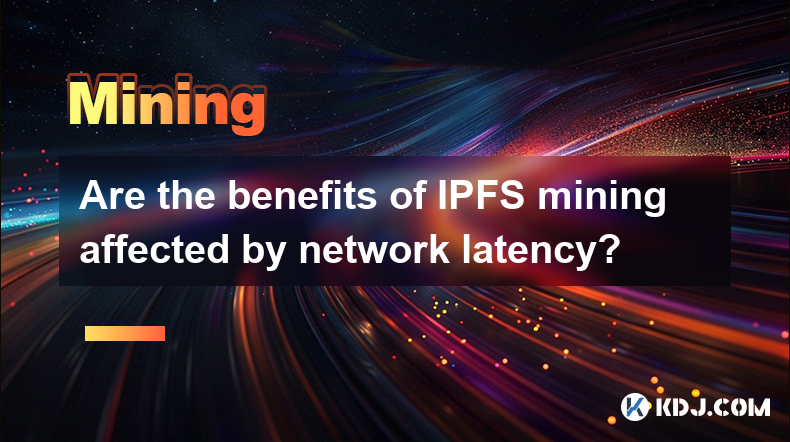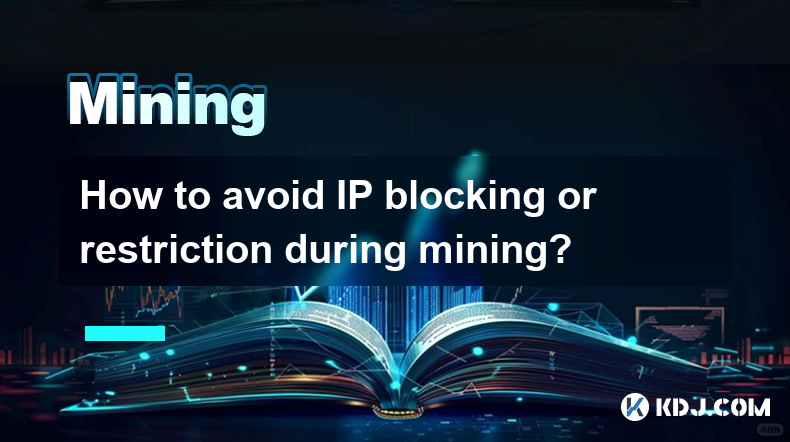-
 Bitcoin
Bitcoin $84,650.6039
1.12% -
 Ethereum
Ethereum $1,598.2028
1.34% -
 Tether USDt
Tether USDt $0.9997
-0.03% -
 XRP
XRP $2.1078
1.77% -
 BNB
BNB $587.8170
1.08% -
 Solana
Solana $133.8641
6.87% -
 USDC
USDC $1.0002
0.01% -
 TRON
TRON $0.2474
-2.42% -
 Dogecoin
Dogecoin $0.1566
2.47% -
 Cardano
Cardano $0.6212
2.83% -
 UNUS SED LEO
UNUS SED LEO $9.4611
0.96% -
 Chainlink
Chainlink $12.5054
3.10% -
 Avalanche
Avalanche $19.3976
3.15% -
 Toncoin
Toncoin $2.9605
3.61% -
 Stellar
Stellar $0.2389
1.75% -
 Shiba Inu
Shiba Inu $0.0...01186
1.92% -
 Sui
Sui $2.1056
2.04% -
 Hedera
Hedera $0.1604
2.35% -
 Bitcoin Cash
Bitcoin Cash $332.3429
4.62% -
 Polkadot
Polkadot $3.6316
3.71% -
 Litecoin
Litecoin $75.2379
1.57% -
 Hyperliquid
Hyperliquid $16.7140
10.27% -
 Dai
Dai $0.9999
-0.01% -
 Bitget Token
Bitget Token $4.3636
0.77% -
 Ethena USDe
Ethena USDe $0.9991
-0.02% -
 Pi
Pi $0.6066
0.02% -
 Monero
Monero $217.4747
0.05% -
 Uniswap
Uniswap $5.2126
1.45% -
 Pepe
Pepe $0.0...07297
2.27% -
 OKB
OKB $50.9568
-1.99%
Are the benefits of IPFS mining affected by network latency?
High network latency significantly reduces IPFS mining profitability by slowing data transfers, hindering file retrieval, and decreasing reward opportunities. Strategic server location and utilizing CDNs are crucial for mitigation.
Mar 20, 2025 at 05:21 am

Key Points:
- Network latency significantly impacts IPFS mining profitability and efficiency.
- High latency leads to slower data transfer speeds, reducing the number of files you can store and retrieve.
- Geographic location plays a crucial role in determining latency and, consequently, mining rewards.
- Choosing a server location with low latency is paramount for successful IPFS mining.
- Strategies to mitigate latency's negative effects include utilizing Content Delivery Networks (CDNs) and optimizing local network infrastructure.
Are the benefits of IPFS mining affected by network latency?
Yes, the benefits of IPFS mining are significantly affected by network latency. IPFS, or the InterPlanetary File System, relies on a distributed network of nodes to store and retrieve data. The speed at which these nodes can communicate and exchange information directly impacts a miner's ability to participate effectively in the network and earn rewards. High latency introduces delays, hindering the process.
Network latency refers to the delay in data transmission between two points in a network. In the context of IPFS mining, this delay affects several crucial aspects. First, it slows down the process of uploading and downloading files. The longer it takes to transfer data, the fewer files a miner can store and share, directly impacting their potential earnings.
Furthermore, latency affects a miner's ability to respond to requests for data. IPFS rewards nodes that successfully provide requested files. If a miner experiences high latency, they may be slower to respond than others, missing opportunities to earn rewards. This competitive aspect of IPFS mining emphasizes the importance of minimizing latency.
The geographic location of a miner's server plays a significant role in determining latency. Servers located far from other nodes or major internet exchange points will naturally experience higher latency. Conversely, servers in strategically located data centers with robust network infrastructure will benefit from lower latency and enhanced performance.
The impact of latency is not uniform across all IPFS mining operations. Miners storing and serving large files will be more significantly impacted by high latency than those dealing with smaller files. The size and frequency of data transfers directly correlate with the extent to which latency affects profitability.
Several strategies can help mitigate the negative effects of network latency on IPFS mining. One effective approach is to utilize a Content Delivery Network (CDN). CDNs strategically distribute data across multiple servers globally, ensuring that users can access files from the nearest server, thus reducing latency.
Another strategy involves optimizing the local network infrastructure. This includes upgrading network hardware, ensuring a stable internet connection, and configuring the mining software for optimal performance. Investing in high-bandwidth connections and minimizing network congestion can significantly reduce latency. Regular monitoring of network performance and identifying bottlenecks are also crucial.
Choosing the right server location is paramount. Selecting a data center in a region with low latency to the rest of the IPFS network is crucial for maximizing mining rewards. Factors to consider include proximity to major internet exchange points and the overall network infrastructure of the region.
Beyond hardware and location, the software used also plays a role. Efficiently written and optimized IPFS mining software can minimize the overhead associated with data transfer, helping to reduce the impact of latency. Regularly updating software to leverage the latest optimizations is also beneficial.
Common Questions and Answers:
Q: How does high latency affect my IPFS mining rewards?
A: High latency slows data transfer, reducing the number of files you can serve and the speed at which you respond to requests. This directly impacts your chances of earning rewards, as faster nodes are more likely to be chosen for serving data.
Q: Can I mitigate latency issues with a home internet connection?
A: While some improvements are possible by upgrading your home internet, it's generally not ideal. Data centers offer far more stable and higher bandwidth connections, crucial for minimizing latency in IPFS mining.
Q: What is the ideal latency for IPFS mining?
A: There's no single "ideal" latency, as it depends on various factors. However, aiming for the lowest possible latency is always beneficial. Anything below 100ms is generally considered good, while latency above 200ms can significantly impact performance.
Q: Are there any IPFS mining services that help manage latency?
A: Yes, some providers offer IPFS mining services that handle the infrastructure and optimization aspects, including server location and network management to minimize latency for their clients.
Q: How can I monitor my network latency for IPFS mining?
A: You can use various network monitoring tools to measure latency. These tools often provide detailed information on ping times, packet loss, and other relevant metrics. Many are available online, and your IPFS mining software might incorporate its own monitoring capabilities.
Q: Does the type of file stored affect latency impact?
A: Yes, larger files will naturally be more susceptible to latency issues due to increased transfer times. Smaller files will be less affected, but consistent high latency will still reduce overall throughput and potential rewards.
Disclaimer:info@kdj.com
The information provided is not trading advice. kdj.com does not assume any responsibility for any investments made based on the information provided in this article. Cryptocurrencies are highly volatile and it is highly recommended that you invest with caution after thorough research!
If you believe that the content used on this website infringes your copyright, please contact us immediately (info@kdj.com) and we will delete it promptly.
- SUI holds firm at $2 as wedge breakout nears
- 2025-04-17 21:15:12
- Dawgz AI ($DAGZ) Shows Strong Presale Momentum, Targeting Breakout Potential After Launch
- 2025-04-17 21:15:12
- Amazon Web Services (AWS) Outage Freezes Cryptocurrency Withdrawals on Binance, KuCoin, and MEXC
- 2025-04-17 21:10:13
- Introducing Initia (INIT) to Binance Launchpool
- 2025-04-17 21:10:13
- How Much Could 2,500 ONDO Tokens Make You by the End of 2025?
- 2025-04-17 21:05:14
- Bitcoin (BTC) Infrastructure Developer Lombard Finance Launches One-Click Staking SDK
- 2025-04-17 21:05:14
Related knowledge

How to deal with abnormal noise during mining machine operation?
Apr 17,2025 at 01:35am
Mining machines are essential tools for cryptocurrency miners, but they can sometimes produce abnormal noises that may indicate underlying issues. Understanding how to identify and address these noises is crucial for maintaining the efficiency and longevity of your mining equipment. This article will guide you through the process of dealing with abnorma...

How to maintain anonymity when mining?
Apr 17,2025 at 06:01pm
Maintaining anonymity when mining cryptocurrencies is crucial for many miners who wish to protect their privacy and security. This article will guide you through various strategies and tools that can help you achieve a high level of anonymity while engaging in mining activities. Understanding the Importance of Anonymity in MiningAnonymity in the context...

How to increase income through merged mining?
Apr 17,2025 at 09:22am
Merged mining is a technique that allows miners to mine more than one cryptocurrency at the same time, using the same computational resources. This method can significantly increase income for miners by maximizing the efficiency of their hardware and reducing the overall cost per hash. In this article, we will explore the concept of merged mining, its b...

How to optimize mining machine performance through BIOS settings?
Apr 17,2025 at 08:07pm
Optimizing the performance of a mining machine through BIOS settings can significantly enhance its efficiency and profitability. The BIOS, or Basic Input/Output System, is the firmware that controls the basic functions of your computer and provides runtime services for operating systems and programs. By tweaking certain settings within the BIOS, miners ...

How to deploy mining programs under Linux system?
Apr 17,2025 at 09:57am
Deploying mining programs under a Linux system can be a rewarding endeavor for those interested in cryptocurrency mining. This process involves several steps, from setting up the environment to running the mining software. In this article, we will guide you through the detailed process of deploying mining programs on a Linux system, ensuring you have al...

How to avoid IP blocking or restriction during mining?
Apr 16,2025 at 09:36pm
Mining cryptocurrency is an exciting venture that can yield significant rewards, but it can also come with its own set of challenges. One of these challenges is IP blocking or restriction, which can hinder your mining activities. In this article, we will explore various strategies to avoid IP blocking or restriction during mining, ensuring that you can ...

How to deal with abnormal noise during mining machine operation?
Apr 17,2025 at 01:35am
Mining machines are essential tools for cryptocurrency miners, but they can sometimes produce abnormal noises that may indicate underlying issues. Understanding how to identify and address these noises is crucial for maintaining the efficiency and longevity of your mining equipment. This article will guide you through the process of dealing with abnorma...

How to maintain anonymity when mining?
Apr 17,2025 at 06:01pm
Maintaining anonymity when mining cryptocurrencies is crucial for many miners who wish to protect their privacy and security. This article will guide you through various strategies and tools that can help you achieve a high level of anonymity while engaging in mining activities. Understanding the Importance of Anonymity in MiningAnonymity in the context...

How to increase income through merged mining?
Apr 17,2025 at 09:22am
Merged mining is a technique that allows miners to mine more than one cryptocurrency at the same time, using the same computational resources. This method can significantly increase income for miners by maximizing the efficiency of their hardware and reducing the overall cost per hash. In this article, we will explore the concept of merged mining, its b...

How to optimize mining machine performance through BIOS settings?
Apr 17,2025 at 08:07pm
Optimizing the performance of a mining machine through BIOS settings can significantly enhance its efficiency and profitability. The BIOS, or Basic Input/Output System, is the firmware that controls the basic functions of your computer and provides runtime services for operating systems and programs. By tweaking certain settings within the BIOS, miners ...

How to deploy mining programs under Linux system?
Apr 17,2025 at 09:57am
Deploying mining programs under a Linux system can be a rewarding endeavor for those interested in cryptocurrency mining. This process involves several steps, from setting up the environment to running the mining software. In this article, we will guide you through the detailed process of deploying mining programs on a Linux system, ensuring you have al...

How to avoid IP blocking or restriction during mining?
Apr 16,2025 at 09:36pm
Mining cryptocurrency is an exciting venture that can yield significant rewards, but it can also come with its own set of challenges. One of these challenges is IP blocking or restriction, which can hinder your mining activities. In this article, we will explore various strategies to avoid IP blocking or restriction during mining, ensuring that you can ...
See all articles























































































